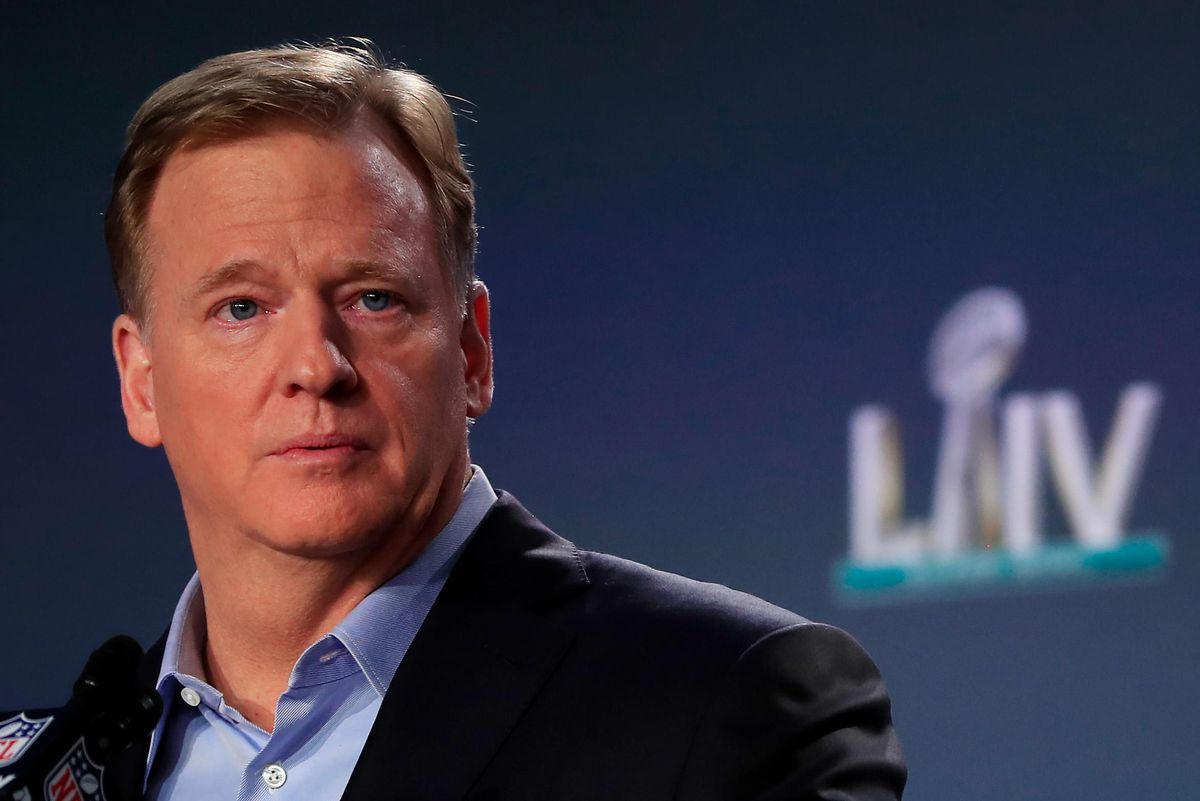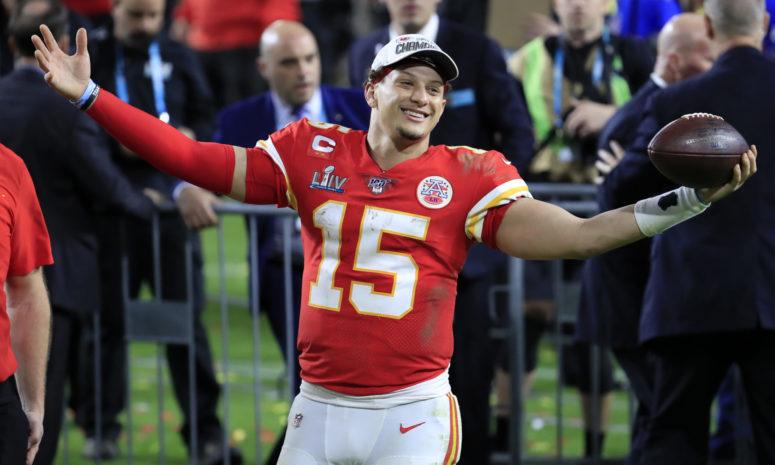The NFL is eager to renegotiate its television rights on the heels of a good season. But improving ratings may not impress media buyers who worry the coronavirus could hurt advertisers.

The NFL had a relatively good year, with television ratings up roughly 5% during the 2019 regular season. As a result, the league is pushing to close its collective bargaining agreement (CBA) early. The earlier it signs a new CBA with players, the sooner the NFL can renegotiate new media rights deals.
There are reasons why the NFL wants media rights locked down earlier, rather than later. But an outbreak of the coronavirus (COVID-19) could upset the NFL’s hurry-up timetable.
The NFL’s current CBA doesn’t expire until the end of the 2020 season. Meanwhile, the NFL’s current deal with ESPN extends through the end of the 2021 season. It’s deal with FOX, CBS, and NBC doesn’t expire until 2022. So why is the NFL pushing so hard now? Economics and elections.
NFL Wants New TV Rights Deal Early
During the last presidential election in 2016, NFL ratings dropped 8%. One NFL executive told the Wall Street Journal, “If Donald Trump is debating Bernie or Bloomberg, and it goes up against an NFL game, it’s going to hurt our ratings.” The NFL wants to renew its broadcast rights from a position of strength, so it would prefer to renegotiate before the presidential election can ding its ratings.

Meanwhile, an economic recession could also hurt the NFL’s potential contracts. If corporations are hurt by an economic downturn, they won’t pony up as much to advertise during NFL games or to be an official NFL sponsor.
The US economy has been on a winning streak since the Great Recession of 2007-2009, but this latest up-cycle is long in the tooth and, therefore, more vulnerable. The NFL wants to lock down contract renewals before anything breaks the cycle. Unfortunately, a global outbreak of the coronavirus is already starting to take an economic toll.
A slew of companies, including Microsoft, Apple, United Airlines, and Marriott International have already warned that their earnings will be hurt by the virus. Anhueser-Busch InBev, one of the NFL’s sponsors and advertising stalwarts, estimates a 10% drop in its first-quarter earnings. Furthermore, the stock market suffered its worst weekly decline since the 2008 financial crisis last week, as investors feared the economic impact from the coronavirus could get worse.
The timing is unfortunate, and the stakes couldn’t be higher.
Billions at Stake in New Media Deals
CNBC’s unnamed sources suggest that the NFL is looking to double its rate to broadcast Sunday afternoon games from $1 billion to $2 billion per year. The price tag to broadcast Monday Night Football, currently contracted by ESPN, may rise from $2 billion to $3 billion annually.
As part of the NFL’s two-minute renewal drill, Commissioner Roger Goodell appeared on Fox Business on Feb.2. His primary message was that the NFL was “very open to changing packages, very open to changing partners.” Whether the likes of Amazon, Google, Netflix, or Apple take the bait, is doubtful. It is more likely that the usual suspects will pony up for the NFL’s broadcast rights.
Although virus fears are escalating, the NFL is still pushing forward. NFL owners approved the proposed CBA on Feb. 20. Less than a week later, the NFL Players Association board voted to send out the proposed agreement to its players. While the CBA could see a vote in the next few weeks, its approval by the players isn’t a slam dunk. The 17-game season and the players’ cut of profits are both contentious issues.
The biggest obstacle the NFL has to a speedy rights renegotiation, however, may not be the CBA. It may be the economy.











